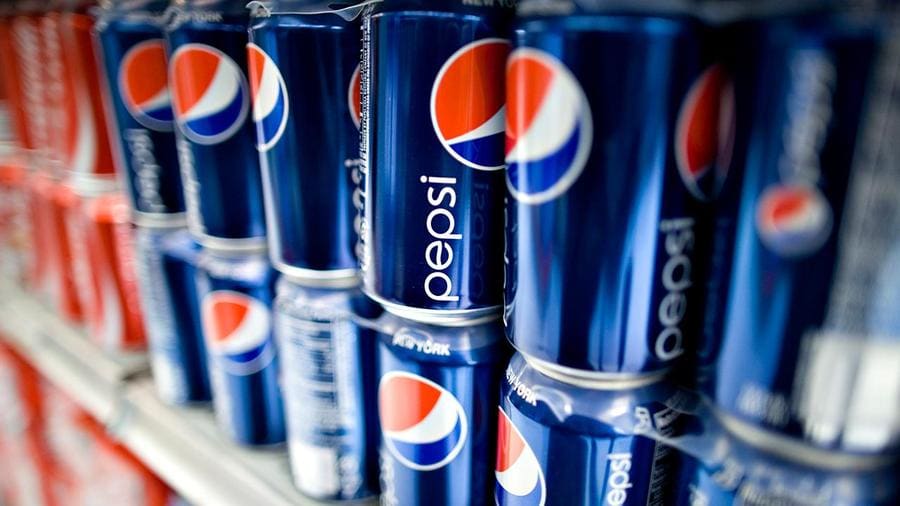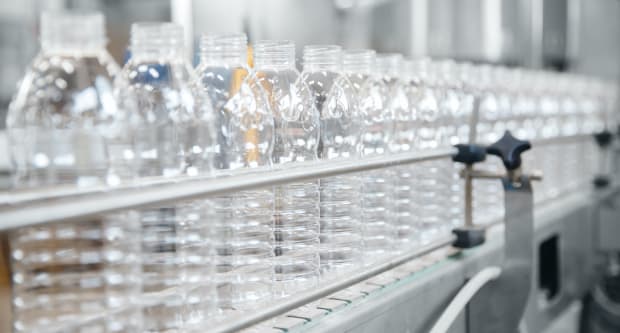
Greenwashing: it's the hot buzzword for companies who claim to be looking out for the environment in order to win over public favor. In truth, the path to sustainability is nuanced and ever-evolving. It involves creative alternatives when it comes to production, packaging, and shipping products. It's always important for consumers to keep an eye on which companies make promises and which ones deliver.
In 2018, the UN Environment Program teamed up with the Ellen MacArthur Foundation to form an initiative that would see companies moving to reduce plastic pollution. The foundation's aim is to shift the economy of products from the linear model (create, use, dispose) to a circular economy.
According to the foundation's site, "in our current economy, we take materials from the Earth, make products from them, and eventually throw them away as waste – the process is linear. In a circular economy, by contrast, we stop waste being produced in the first place."
Several major companies participated in the initiative, including big producers of plastic packaging in the beverage industry. Major players like Nestlé (NSRGY), PepsiCo (PEP), Coca-Cola (KO), Mars Inc. (MNBP) , L’Oréal (LRLCY) , and SC Johnson set goals for the future of plastic sustainability. The companies committed to using significantly less new “virgin” plastic and increasing their use of recycled plastics. The pledges also included making strides toward using 100% recyclable, reusable, or compostable packaging.
According to the most recent report published by the Ellen MacArthur Foundation, these companies have made some progress. But they are unlikely to meet sustainability goals set for the end of 2025.

Major Companies Are Becoming More Sustainable
But is it enough? A progress report from the Ellen MacArthur Foundation showed that many of the companies weren't on their way to making the goals set out for the future. The foundation's original goal was to see all participating organizations make the transfer to 100% reusable, recyclable, or compostable materials by 2025. The goal is a lofty one, and unfortunately most companies aren't on track to make that goal.
Unfortunately, two of the largest generators of plastic, Coca-Cola and Pepsi, used more non-recycled plastic last year than they did the previous year. Pepsi pledged to use 5% less plastic in 2021 than it did in 2020, but instead, the company used 5% more plastic. Coca-Cola performed similarly, committing to a 20% decrease in unrecycled plastic use from 2019. However, in 2021 it actually used 3% more.
Still, according to the report, most of the participating companies have managed to decrease their virgin plastic use over all--which is certainly a step in the right direction. But despite the introduction of more sustainable options into company portfolios, when it comes to the amount of virgin plastic still being used, the numbers are increasing.
The report cites increasing use of plastic sacks and films, which are hard to recycle and a lack of a recycling-based infrastructure as the main barriers to achieving sustainability. The report does, however, specifically praise PepsiCo. and Coca-Cola Brands for announcing their intentions to shift toward refillable/reusable packaging over the next 3 years.
Progress is Marginal, but Companies are Moving Forward
Missing goals can certainly feel like a failure, but the foundation recognizes that change is happening. Generally speaking, the foundation found a 1.7% increase in the total use of more sustainable alternatives to new plastic. And major companies are using more recycled plastics instead of creating new plastic. And that's good. The report found a 5% increase in the amount of post-consumer recycled (PCR) materials.
Still, if you follow this small gain’s trajectory, it's going to take more than 3 years for these companies to completely wipe out the use of non-recycled plastic by 2025. Companies are encouraged to contemplate the urgency of the cause and kick sustainability efforts into higher gear in the years to come.







